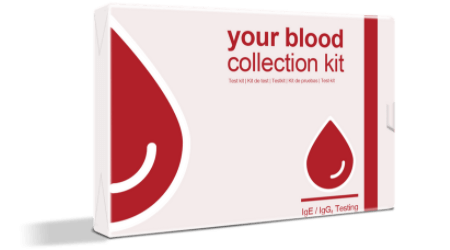Living your life free of discomfort from “bad” food doesn’t need to be rocket science. It also doesn’t need to take you 5 years to do properly. The nugget of information surrounding living better and healthier is almost embarrassingly simple: get support from established institutions. It doesn’t mean you need to spend countless hours at the gym or follow every single fad diet on the internet. You just need to make sure that you’ve got the right, personal information fuelling you. One of the common options that a lot of people seem to be considering these daisies going gluten free. Is it a good idea? Will it be helpful for your goals? Here are some details to keep in mind.
Why should I go gluten free?
Maybe you’ve been contemplating the idea of going gluten free and maybe the thought just occurred to you now. Whichever, gluten free living seems to be more and more popular these days.
Going gluten free can be a good thing in some cases. Those who are considering it are often looking at from the point of view of dealing with gluten intolerance or even something like coeliac disease. In both of these cases, eating gluten rich foods can be painful and even dangerous to short- and long-term health. As such, going entirely clear of gluten becomes something that is very important to consider.
Other people are interested in going free of gluten because of the supposed health benefits. Gluten foods are those that are rich in a lot of carbohydrates, fats and sugars, such as bread, pasta and desserts. In cutting out these kinds of foods, a lot of dieters are hoping to help trim down and enjoy better quality food as well.
There are more and more resources online now to help the dieter find healthy, exciting and tasty recipes that are gluten free as well. This plethora of information has created a sense of ease and serious consideration for those who looking to better their health. What else is there to know about?
Details to consider when gluten free living
Other than the adjustment to different tastes and gluten free options for food, there are some important diet-related details to keep in mind. These can either be positive negative depending on your viewpoint.
Firstly, research supports that living on a gluten free diet can be challenging without the support of a dietician or nutritionist. There are a lot of nutrients and vitamins that come from gluten-containing foods and these foods can be hard to replicate elsewhere without proper guidance from a specialist [1].
Additionally, studies have shown that it can be difficult to find gluten free alternatives in pasta, bread etc in a lot of the different grocery shops or restaurants [2]. While there is support for gluten free living, particularly in most recent times, getting access to those kinds of products is not always easy. Additionally, the price is going to be another contributing factor, as every single location that offered gluten free products does so at a higher cost, be it from gluten free cereals to a gluten-free sandwich at a restaurant [2].
Taste also factors into the decision in a practical way. When you are looking at recipes online and searching for fun ways to either enjoy gluten free foods or even going with natural gluten free (that is, alternative) diets instead, you’ll want to make sure that you actually like the taste of it. If you don’t have a wide palette, going with sauces or spices may not appeal to you. Likewise, you may not like the powdery or sugary taste of gluten free bread or pasta. If you know you’re a picky eater, you’ll want to consider this step carefully.
How do you know to go gluten free?
If you’re still on the fence and you want to know ether going gluten free is going to be a nightmare or a perk, why not let the test determine it? If you turn to us for a food intolerance test, you’ll be able to tell just how intolerant you are to gluten. The severity of the intolerance — marked with our test — can help you determine whether you need to totally eliminate it from your diet or whether you just need to watch your portions a little closer instead.
Who knows, it may even tell you that you are intolerant to something else instead! In that case, going gluten free wouldn’t offer you relief from any of the symptoms that you are dealing with. This is probably something you’d want to know before you start changing your life in a big way, right? Exactly. Our test is easy to take and we have experienced customer service professionals available 24/5 to answer any questions or concerns you may have on the testing process.
References:
[1] Niewinski, M.M., 2008. Advances in celiac disease and gluten-free diet. Journal of the American Dietetic Association, 108(4), pp.661-672. Available at: https://www.sciencedirect.com/science/article/abs/pii/S0002822308000126
[2] Lee, A.R., Ng, D.L., Zivin, J. and Green, P.H.R., 2007. Economic burden of a gluten‐free diet. Journal of human Nutrition and Dietetics, 20(5), pp.423-430. Available at: https://onlinelibrary.wiley.com/doi/abs/10.1111/j.1365-277X.2007.00763.x



